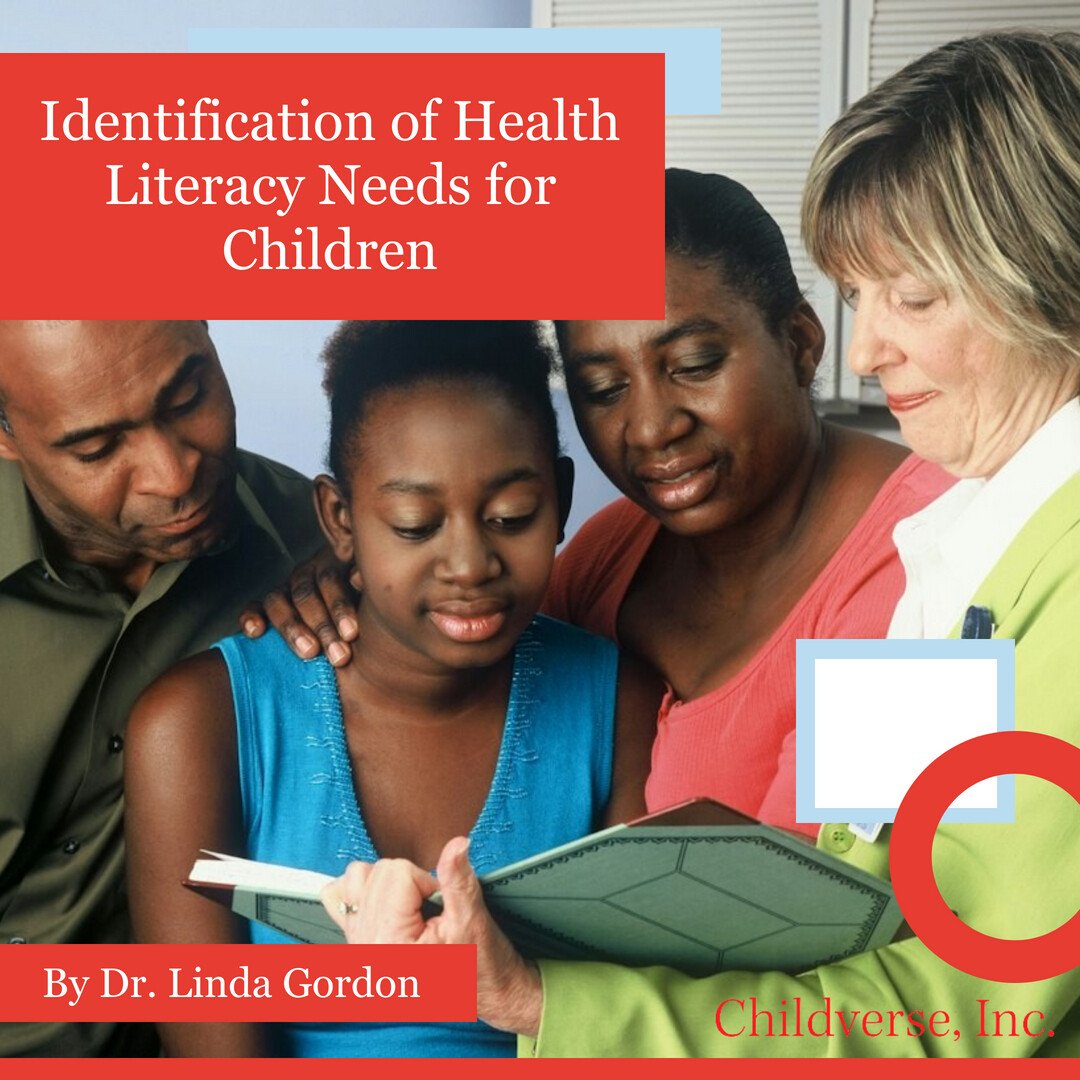Identification of Health Literacy Needs for Children
Navigating Support Systems
Health Literacy is the navigation of the supports and services that treat disease and maintain wellness. Literacy includes the identification of the places, people, and professions that provide health care. To state more clearly, access to care, active engagement with, and intentional utilization of community resources. This includes the purposeful location of sites of access, dialogue, questioning of providers, and efforts to interact with allied and or public health supports.
Understanding Child Wellness
For child wellness, this literacy requires a reading of the health care system. This read of health care includes communication of acute and ongoing symptoms to aid in their management. For children, symptoms are managed at home with the family, in school and within the community.
Recognizing Points of Care:
The first gap is to recognize the points of care. The symptoms are real, without fault, and require action. A good relationship with your pediatrician can distinguish pathology from normal variants. Fostering communication with teachers is also helpful in determining daily functional impairments. Early recognition of symptoms is a literacy skill that one need not acquire alone. With the aid of child providers, educators, and advocates, one can read child behavior, and academic performance, and avoid the consequences of delayed intervention. Consequences include home disruption, school failure, and mental health crises.
Expanding the Support Circle
Building on these relationships, one can extend the support circle to include faith leaders, trusted family elders, social workers, and mental health professionals. Adding to the body of information and points of view permits informed access to those aiding in the wellness of your child.
Addressing Mental Health Care Gaps
Defining a community and avoiding isolation due to stigma, language and cultural barriers and finances is important and key in developing health literacy. Communities inform, guide, and empower. An empowered caregiver can benefit their loved one, despite care gaps in the mental health care system. These gaps in care include stigma, provider, and teacher training deficits, shortages of expert behavioral health specialists, and outdated cultural or religious beliefs.
Enhancing Health Literacy
This next series of blogs will present several points of view that aid in increasing health literacy. Should you find this information helpful, please let us know by email, post, or tweet. Also, if you are moved to add to the discussion, please contact us to arrange for a guest opinion editorial.
